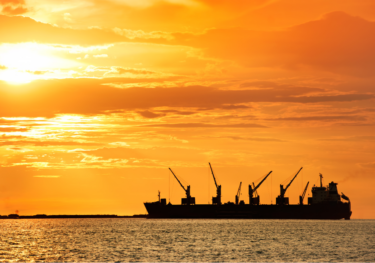The Deglobalisation Myth: How Asia’s supply chains are changing

Global supply chains have continued to expand, despite talk of deglobalisation and nearshoring. Analysing bilateral flows of trade in intermediate goods (IG), we find that global IG exports have grown by 6% a year between 2018 and 2022. Outside of some specific cases such as US-Mexico, regional-shoring is not yet present at the global level.
Asia’s supply chains are changing rapidly. We also find evidence of China’s decoupling – but only with US and Japan. In contrast, China has actually became more important for international supply chain in major Group of 7 economies. Outside the top 3 regional players (China, Japan and Korea), several Asian countries are emerging as “hotspots” of supply-chain trade growth. In particular, Vietnam and Indonesia registered double-digit growth in annual intermediate goods exports during this period.
There are more than one winning formula in this regional reconfiguration process. Economic offering matters and we found three archetypes of hotspot countries.
Also, economies don’t have to choose in this China-US decoupling. In fact, Vietnam and Taiwan became a lot more important for supply chains of both the US and China during this period.
To download the report, please complete the form below.
The experts behind the research
Our Macro Consulting team are world leaders in quantitative economic analysis, working with clients around the globe and across sectors to build models, forecast markets and evaluate interventions using state-of-the art techniques. Lead consultant on this project was:

Thang Nguyen-Quoc
Lead Economist, Macro Consulting
Read the report
Complete the form below to download the report.
Tags:
Recent reports on supply chains

The economic impact of the sports activities of public service media
This study shows how the sports activities of public service media supported €4.5 billion of GDP and 57,000 jobs across 31 European countries in 2022. The report also highlights wider economic benefits of public service media sports coverage, such as the way in which it leverages sponsorship income for sports bodies.
Find Out More
Global Trade Education: The role of private philanthropy
Global trade can amplify economic development and poverty alleviation. Capable leaders are required to put in place enabling conditions for trade, but currently these skills are underprovided in developing countries. For philanthropists, investing in trade leadership talent through graduate-level scholarships is an opportunity to make meaningful contributions that can multiply and sustain global economic development.
Find Out More
Mapping the Plastics Value Chain: A framework to understand the socio-economic impacts of a production cap on virgin plastics
The International Council of Chemical Associations (ICCA) commissioned Oxford Economics to undertake a research program to explore the socio-economic and environmental implications of policy interventions that could be used to reduce plastic pollution, with a focus on a global production cap on primary plastic polymers.
Find Out More
Eurozone: Little sign of harm from the Red Sea disruptions
The impact of Red Sea shipping disruption on the eurozone economy continues to be limited, in line with our baseline view. Our new Eurozone Supply Stress Indicator suggests that supply pressures have returned to normal following a period of easing in 2023.
Find Out More